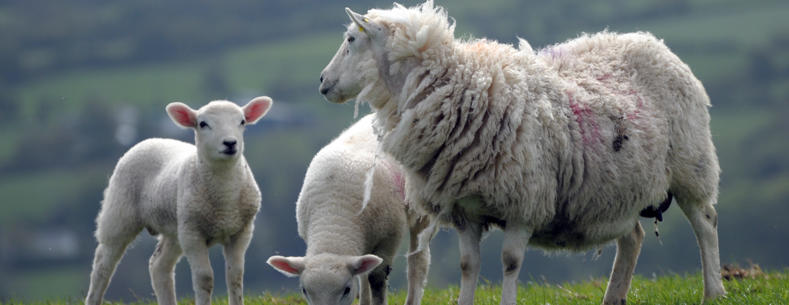Since the UK left the EU it can negotiate and sign its own trade agreements. The UK Government set a target for 80% of UK international trade to be covered by free trade agreements by the end of 2022 and has been negotiating with countries around the world to achieve this.
The UK signed a free trade agreement with Australia in December 2021 and, just two months later with New Zealand, in February 2022.
These are the first new free trade deals the UK has negotiated and finalised ‘from scratch’ since leaving the EU.
What insight does the UK’s first new free trade agreements give us into the UK Government’s approach to trade policy post-Brexit? What impact will they have on Wales, its economy, and the people that live here?
What’s in the Australia and New Zealand trade deals?
Both agreements cover a number of areas often found in free trade agreements, including trade in goods and services, rules of origin, technical barriers to trade and government procurement.
These include provisions covering sanitary and phytosanitary (SPS) measures (i.e. food safety and animal and plant health) and chapters on small businesses and animal welfare. Their environment chapters affirm their commitments made under multilateral environmental agreements, including the 2015 Paris Agreement.
What about tariffs?
The agreements will ultimately remove tariffs on all UK exports that qualify as originating from the UK. There are staging arrangements for certain goods between the UK and Australia where tariffs will be gradually reduced over time.
Most tariffs on goods originating in Australia exported to the UK will also be removed (with the exception of pork, most poultry and egg products and long-grained rice), whereas all tariffs on New Zealand originated goods exported into the UK will be removed. Both agreements include a phased approach to eliminating tariffs on some agricultural goods exported from Australia and New Zealand to the UK - such as dairy, beef and sheep meat - to address specific UK product sensitivities.
What are the likely impacts of the agreements?
New trade deals often produce ‘winners and losers’. The UK Government has argued that negotiating and signing new trade deals which reduce trade barriers can provide new opportunities for businesses, improve productivity due to increased competition, and offer more choice and lower prices for consumers. But opening up sensitive sectors such as agri-food can also harm businesses due to increased competition, particularly if product standards differ.
Overall, the economic impact of both agreements are limited. The UK Government’s impact assessment for the Australia agreement estimates the agreement will increase UK GDP by 0.08% or £2.3 billion by 2035. The overall value of the agreement with New Zealand is estimated to be lower, with UK GDP increasing by 0.03% or £0.8 billion by 2035.
Wales is estimated to see a 0.09% change in Gross Value Added (GVA) or around £60 million by 2035 as a result of the deal with Australia, whereas the agreement with New Zealand is expected to result in a 0.02% change in GVA or around £16 million.
Both deals are expected to have varied impacts across different sectors. The UK sectors expected to benefit most are manufacture of motor vehicles and manufacture of machinery and equipment. The Welsh Government’s assessment of the Australia and New Zealand deals says the deals provide opportunities for Welsh businesses in services and mobility. But it also raises concerns about the potential impact on Welsh agriculture.
The UK Government’s assessments don’t give sectoral estimates for Wales. The Senedd’s Economy, Trade and Rural Affairs Committee has called for future trade deals to include assessments of the impacts on sectors and sub-sectors in Wales. The Welsh Government, NFU Cymru and Welsh Local Government Association have also called for a Wales-specific impact assessment for future trade deals.
Concerns about impact on Welsh agriculture
Australia and New Zealand are large, competitive exporters of agricultural goods. So it’s not surprising that much of the debate around the deals has focused on the potential impact on the agri-food sector.
Across the UK, the agriculture, forestry, fishing sector and the semi-processed foods sector are expected to see a reduction in GVA of 0.7% (£94 million) and 2.65% (£225 million) because of the agreement with Australia.
The New Zealand agreement is expected to lead to a reduction in GVA of 0.35% (£48 million) and 1.16% (£97 million) for these same sectors respectively. For the agriculture and semi-processed foods sectors, these impacts are expected to be driven by increased import competition from Australia in the beef and sheepmeat sectors, and from New Zealand in the beef sector.
The Welsh Government says neither deal provides any significant opportunities for Welsh agricultural producers and that the increased market access for Australian and New Zealand producers presents a number of concerns. The NFU Cymru and the Farmers' Union of Wales say the negative impact estimated for agriculture will likely be disproportionately felt in Wales compared to other parts of the UK because of its reliance on beef and sheepmeat.
The UK Government maintains that both the Australia and New Zealand deals create new opportunities for food and drink exporters and that specific safeguards are in place for both agreements to protect farmers. It also says it doesn’t anticipate a big increase in sheepmeat imports from New Zealand because New Zealand doesn’t use up its existing WTO quota for lamb exports to the UK.
What next?
Signing the trade deals with New Zealand and Australia is geopolitically significant. It supports the UK Government’s ambitions for the UK to join the Comprehensive and Progressive Agreement for Trans-Pacific Partnership (CPTPP) – a free trade agreement between 11 countries around the Pacific Rim, including Australia and New Zealand. The UK Government hopes to conclude these negotiations by the end of 2022.
Before either agreement can come into force, the UK, New Zealand and Australia must complete various domestic procedures. On the UK side, the agreement with Australia has completed its scrutiny process through the UK Parliament, whereas the agreement with New Zealand is yet to be laid in the UK Parliament to begin that process.
The Trade (Australia & New Zealand) Bill is currently going through the UK Parliament. The Bill implements the government procurement obligations arising from the agreements. The Bill must be passed and receive royal assent before the agreements enter into force. The Welsh Government laid a Legislative Consent Memorandum on the Bill before the Senedd in May 2022.
Article by Rhun Davies, Senedd Research, Welsh Parliament






